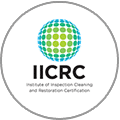As a homeowner, protecting your property from water damage should be a top priority. A small leak or flood can cause significant damage and lead to costly repairs. Fortunately, by implementing a few essential water damage prevention tips, you can keep your home safe and dry.
Regular maintenance and prompt action are key to preventing water-related issues. In this section, we will discuss the top strategies you can adopt to safeguard your home from water damage.
Key Takeaways
- Regularly inspect and maintain your roof to prevent leaks and damage.
- Properly maintain gutters and downspouts to direct water away from your home’s foundation.
- Protect your basement with a sump pump and waterproofing techniques.
- Check and maintain plumbing fixtures to prevent leaks and drips.
- Install water leak detection devices for early warning signs of leaks.
- Maintain proper landscaping and grading around your home to divert water away from the foundation.
Regularly Inspect and Maintain Your Roof
Your roof is a crucial part of your home’s protection against water damage. It’s important to inspect and maintain it regularly to prevent leaks and other issues. Here are some tips for maintaining your roof:
| Task | How Often? |
|---|---|
| Inspect your roof | Twice a year (spring and fall) |
| Clean your gutters | At least once a year |
| Trim overhanging tree branches | Annually or as needed |
| Replace damaged shingles | As soon as possible |
Regular roof inspections can help you identify any issues before they become major problems. Look for missing or damaged shingles, cracks, and leaks. Clean your gutters to prevent water from backing up onto your roof. Trim any overhanging branches to prevent them from damaging your roof during storms.
If you notice any issues with your roof, it’s important to address them promptly. Ignoring problems can lead to more significant damage and expensive repairs. Hire a professional if you’re not comfortable inspecting or repairing your roof yourself.
By regularly inspecting and maintaining your roof, you can prevent water damage to your home and save yourself time and money in the long run.
Keep Gutters and Downspouts Clean and Functional
Proper maintenance of your gutters and downspouts is essential to prevent water damage to your home. Clogged gutters and downspouts can cause water to overflow and seep into the foundation, leading to costly repairs.
To avoid this, you should clean your gutters and downspouts at least twice a year, or more depending on the surrounding trees and foliage. You can use a trowel or scoop to remove debris, and then flush the gutters with water to ensure they’re clear. You can also install a gutter guard to prevent leaves and branches from accumulating in your gutters.
Additionally, check that your downspouts are functioning properly. Direct the downspouts away from your home’s foundation to prevent water from pooling around it. You can use downspout extensions to ensure that water is deposited at least five feet away from the house.
Avoiding water damage starts with proper gutter maintenance and downspout cleaning. Keep your gutters and downspouts free of debris and ensure they’re directing water away from your home’s foundation. With regular maintenance, you can save yourself from the headaches and costs of water damage.
Protect Your Basement from Water Damage
Your basement is one of the most vulnerable areas of your home when it comes to water damage. Heavy rain, melting snow, or a burst pipe can quickly turn your basement into a flooded mess. Preventing basement water damage is crucial to keeping your home safe and dry.
One of the most effective ways to protect your basement from water damage is by installing a sump pump. A sump pump is a device that pumps water out of your basement and away from your home’s foundation. It is especially useful in areas with high water tables or prone to flooding.
| Basement Water Damage Prevention Tips | Sump Pump Installation Tips |
|---|---|
|
|
By following these basement water damage prevention tips and installing a sump pump, you can ensure your basement stays dry and prevent costly repairs. Remember to regularly maintain and inspect your sump pump to ensure it is working correctly and be prepared for any unexpected water-related situations.
Check and Maintain Plumbing Fixtures
To prevent water damage in your home, it’s essential to regularly check and maintain your plumbing fixtures. This includes faucets, pipes, and toilets. Even small leaks or drips can lead to significant damage over time.
Leaky faucets may seem like a minor issue, but they can waste a lot of water and cause damage to your home. Fix them promptly by replacing worn-out washers or other damaged parts. If you’re not comfortable making the repairs yourself, consider hiring a professional plumber.
Monitor your pipes regularly, especially during cold weather. Freezing temperatures can cause pipes to burst, causing significant water damage. Insulate exposed pipes to protect them from freezing.
Be sure to check your toilets regularly for leaks. A simple test involves placing a few drops of food coloring in the tank and waiting a few minutes. If the color appears in the bowl, you have a leaking toilet that needs to be fixed.
Regular plumbing maintenance is crucial for preventing water damage in your home. By taking prompt action and fixing any issues immediately, you can save yourself from costly repairs and potential headaches.
Install Water Leak Detection Devices
Don’t let water leaks go unnoticed in your home. Install water leak detection devices to catch them early. These devices can be placed in areas prone to leaks, such as near pipes, appliances, and water heaters. When a leak is detected, the device will sound an alarm to alert you. This can help you take prompt action and prevent costly water damage.
Consider using smart home technology for even greater peace of mind. Some water leak detection devices can be connected to your home’s Wi-Fi network, allowing you to receive alerts on your phone or tablet. This way, you can monitor your home’s water usage and detect leaks no matter where you are.
| Pros | Cons |
|---|---|
|
|
While water leak detection devices can provide valuable protection, they are not a substitute for regular maintenance and inspection. Be sure to check your plumbing fixtures and appliances regularly for signs of leaks or damage. Taking proactive steps can help prevent water damage and keep your home dry and safe.
Maintain Proper Landscaping and Grading
Proper landscaping and grading around your home are essential for preventing water damage. A poorly graded yard can cause water to puddle and collect around your home’s foundation, leading to potential leaks and damage.
Ensure your yard is sloped away from your house to prevent water from pooling. You can use the following landscaping techniques to promote water drainage:
- Plant native plants and grasses that can absorb excess water.
- Install a rain garden or bioswale to capture and filter rainwater runoff.
- Use rocks or mulch to create a dry stream bed to redirect water flow.
It’s also important to maintain your yard regularly to prevent debris from clogging your gutters and downspouts. Keep an eye out for any signs of water damage, such as standing water or wet spots in your yard.
| Benefits of Proper Landscaping | Drawbacks of Poor Landscaping |
|---|---|
| Prevents water damage to your home | Can lead to potential leaks and damage |
| Improves your home’s curb appeal | Can create a breeding ground for pests |
| Helps to prevent soil erosion | Can increase the risk of foundation damage |
In conclusion, proper landscaping and grading are crucial for preventing water damage to your home. By using appropriate landscaping techniques and regularly maintaining your yard, you can protect your property from potential water-related issues.
Conclusion
By following these essential water damage prevention tips, you can safeguard your home from costly repairs and potential damage. Remember to regularly inspect and maintain your roof, clean and functional gutters and downspouts, protect your basement from water damage, and check and maintain plumbing fixtures. Installing water leak detection devices can also provide early warning signs of potential leaks, and maintaining proper landscaping and grading can help divert water away from your home’s foundation.
Regular maintenance, inspections, and taking prompt action are key to protecting your property from water-related issues. Implementing these strategies today can help keep your home safe and dry, and prevent the need for expensive repairs in the future. Don’t wait until it’s too late – start protecting your home from water damage now.
FAQ
What are some essential water damage prevention tips for homeowners?
Some essential water damage prevention tips for homeowners include regularly inspecting and maintaining your roof, keeping gutters and downspouts clean and functional, protecting your basement from water damage, checking and maintaining plumbing fixtures, installing water leak detection devices, and maintaining proper landscaping and grading around your home.
Why is it important to regularly inspect and maintain your roof?
Regularly inspecting and maintaining your roof is important to prevent water damage. By checking for any damaged or missing shingles, cracks, or leaks, you can repair them promptly and prevent water from seeping into your home.
How can I keep my gutters and downspouts clean and functional?
To keep your gutters and downspouts clean and functional, it is important to regularly clean them to remove debris. This ensures proper water drainage and prevents water from pooling near your home’s foundation. Additionally, make sure your downspouts are directing water away from your property.
How can I protect my basement from water damage?
To protect your basement from water damage, consider installing a sump pump to prevent flooding. Waterproofing the walls and floors can also help prevent water seepage. Additionally, ensure proper drainage around your home and promptly fix any cracks or leaks in the foundation.
What should I do to maintain my plumbing fixtures?
Regularly check and maintain your plumbing fixtures by promptly fixing any leaks or drips. This helps prevent water damage and conserves water. During cold weather, insulate exposed pipes to prevent freezing and bursting.
How can water leak detection devices help prevent water damage?
Water leak detection devices can provide early warning signs of potential water leaks, allowing you to address them before they cause significant damage. Consider using smart home technology for remote monitoring and alerts, providing added convenience and peace of mind.
Why is proper landscaping and grading important for water damage prevention?
Proper landscaping and grading can help divert water away from your home’s foundation. By sloping your yard away from the house and using appropriate landscaping techniques, you can promote water drainage and prevent water from pooling near your home.






